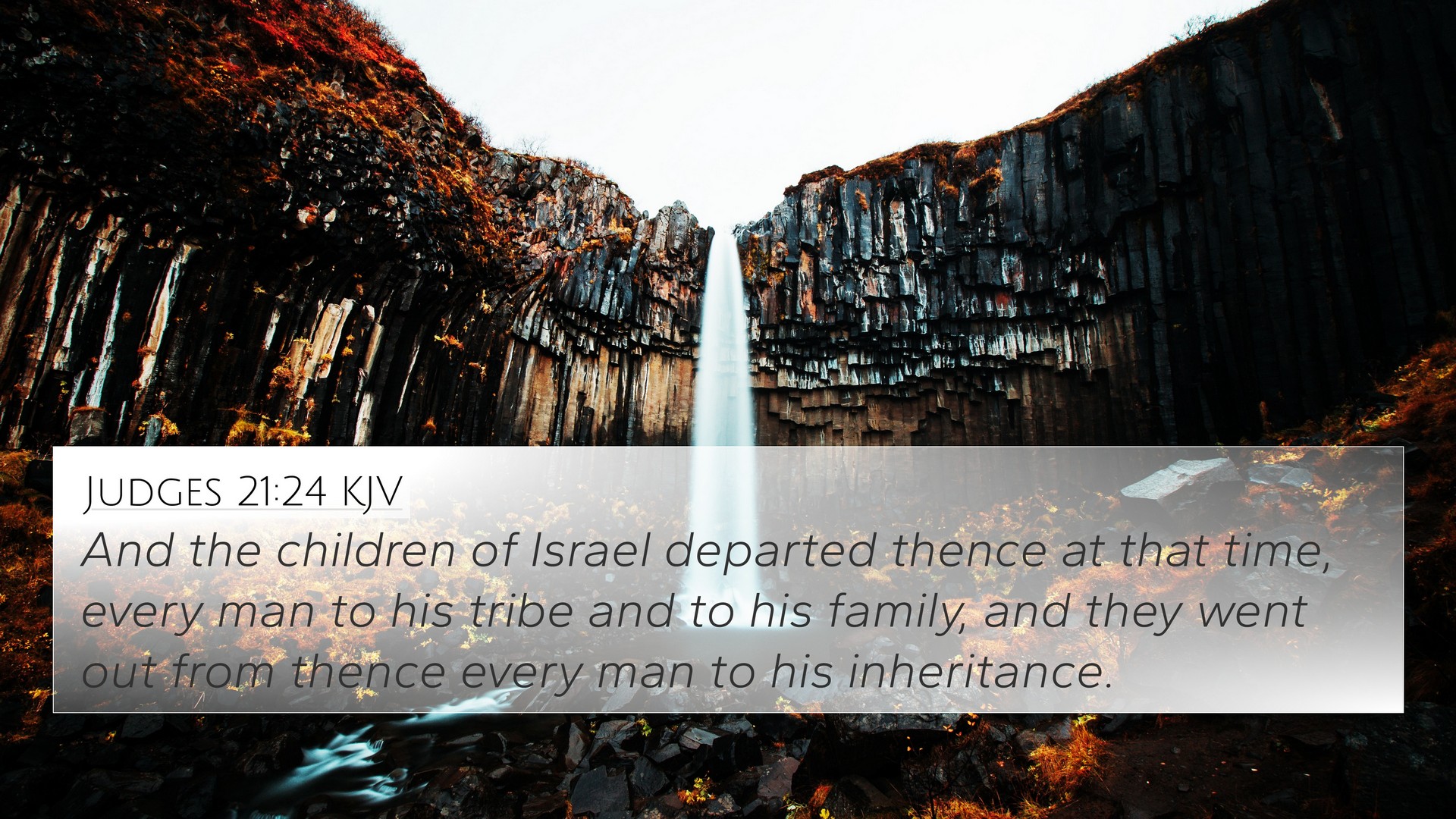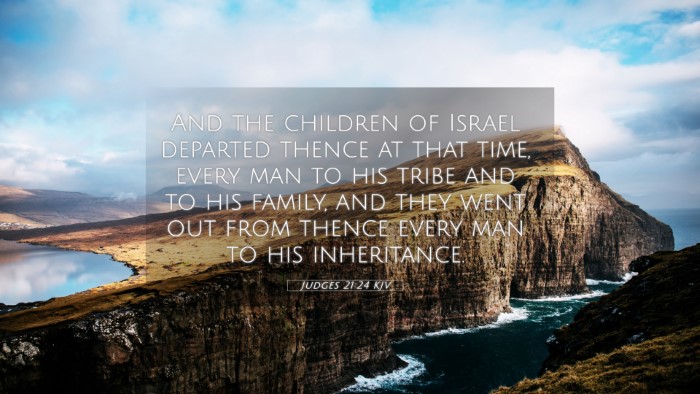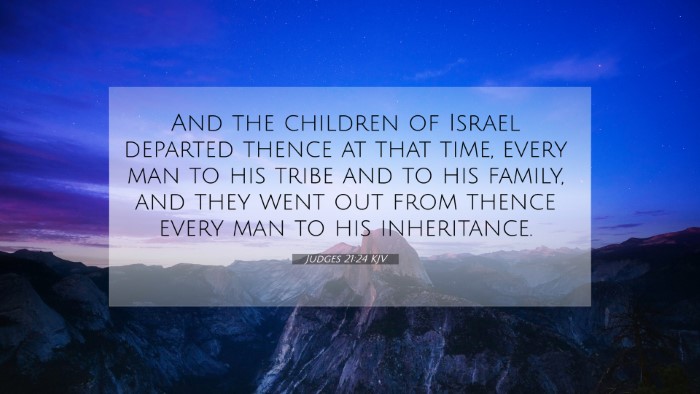Understanding Judges 21:24
Judges 21:24 states: "And the children of Israel departed thence at that time, every man to his tribe and to his family; and they went out from thence every man to his inheritance."
This verse serves as a conclusion to the events of the Book of Judges, marking a transitional moment for the Israelites after a period of turmoil and chaos. Below, we explore the meaning of this verse in context, drawing insights from public domain commentaries by Matthew Henry, Albert Barnes, and Adam Clarke.
1. Contextual Significance
This verse occurs at the end of a tragic narrative concerning the Benjamites and the consequences of internal conflict among the tribes of Israel. As each tribe returns to its own land, it underscores the fragmentation within the nation during this time.
2. Commentary Insights
- Matthew Henry: He highlights the themes of division and the restoration of familial order. The return to their tribes indicates a desire for stability after the chaos. Henry asserts that this return symbolizes God's continued providence, even amid human failure.
- Albert Barnes: Barnes emphasizes the importance of 'inheritance' as a theological concept. Each tribe's return to its own inheritance indicates the fulfillment of God’s promises to the Israelites regarding the land. It reflects a hope for peace and the establishment of tribal identity.
- Adam Clarke: Clarke suggests that this departure signifies a closure to the violent events that transpired. He highlights the human element of reconciliation as each man returns to familial responsibilities, which is a positive step towards reassembling a fractured society.
3. Thematic Connections
This verse connects with broader Biblical themes, particularly concerning the idea of inheritance, family, and divine providence. It serves as a reminder of the importance of community and the notion that God’s people must return to their roots, especially after experiencing strife.
4. Cross-References
To deepen our understanding of Judges 21:24, we can explore several relevant Bible verses that provide connections and parallels:
- Joshua 14:1-2: This passage discusses the distribution of land among the tribes of Israel, emphasizing the significance of their inheritance.
- Deuteronomy 12:10: It speaks about resting from enemies and returning to inherit the land promised by God.
- 1 Samuel 10:1: The anointing of Saul as king serves as a moment of unity following a time of division, reflecting the importance of leadership in guiding tribes.
- Psalm 16:6: "The lines have fallen unto me in pleasant places; yea, I have a goodly heritage," echoing the value of inheritance and God's blessings.
- Hebrews 11:9: References traveling in the land of promise, looking ahead to the ultimate inheritance that believers await.
- Romans 8:17: Speaking of heirs of God, suggesting a spiritual inheritance for those in Christ.
- Acts 2:42: Highlights communal living among the early believers, reminiscent of the unity implied in families returning to their tribes.
5. Summary of Insights
Judges 21:24 encapsulates a moment of reflection and transition for Israel, emphasizing familial ties and the importance of inheritance. Each family returning to its land symbolizes both a physical and spiritual restoration, following a season of distress. The verse serves as a theological reminder of God’s sovereign plan amidst human chaos.
6. Application
Modern readers can draw lessons from the dynamics of personal and communal identity. Just as the Israelites returned to their tribes, believers today are called to find their identity in Christ and within the community of faith. This verse invites us to identify with our spiritual heritage and the promises God has made.
7. Conclusion
Judges 21:24 is not just a historical account; it invites ongoing reflection on themes of family, community, and divine inheritance. Through cross-referencing with related verses, we see the intricate tapestry of God's plan for His people, encouraging us to explore the connections between Bible verses as we deepen our understanding of the scripture.


